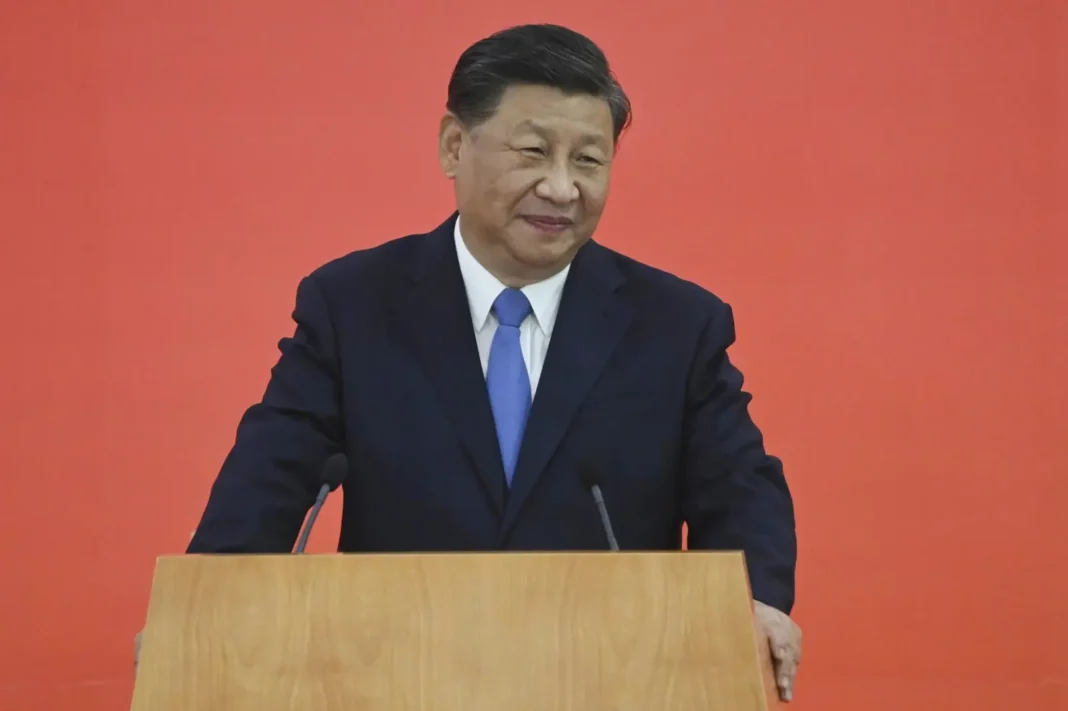Something is worrying Chinese ruler Xi Jinping. On a two-day visit to Hong Kong, he did not spend the intervening night in the territory, a part of the People’s Republic of China. Instead, he slept in Shenzhen, across the border in what is called “mainland China.” He traveled back and forth by special train.
Xi came to Hong Kong to mark the 25th anniversary of Britain’s “handover” of the territory to China. In the Sino-British Joint Declaration of 1984, Beijing promised the city 50 years of a “high degree of autonomy,” under the so-called “one-country, two systems” formula.
“Over the past few years, Hong Kong has experienced great challenges and won the battle against many tests and obstacles,” Xi declared in a short speech the first day of the visit. “Hong Kong has risen from the ashes.”
No, Hong Kong has been subjugated.
The territory saw large-scale protests and riots in 2019 when the government proposed legislation that would have allowed Hong Kongers to be extradited to China — and face Communist Party “justice.” China clamped down hard, most notably by imposing in June 2020 a national-security law that criminalizes dissent. Since then, Chinese officials have flooded the territory and run it by dictating to its top political officer, Chief Executive Carrie Lam. They now control her successor, the handpicked John Lee, who starts his five-year term Friday.
Xi is fast taking control of the city. Authorities do not permit protests; they require “patriotic education”; and they have closed down independent media. Officials repeatedly harassed and raided the territory’s most popular newspaper, Apple Daily, and jailed owner Jimmy Lai along with senior staff. The paper was ultimately forced to close. Hundreds of Hong Kongers have been imprisoned, many under the national-security law, which has been correctly called the end of law in Hong Kong.
The government has been busy removing foreign judges. The rule of law, once the city’s great advantage over rivals Shanghai and Shenzhen, is being quickly eroded. Hong Kong will remain a financial center but only for China itself. Beijing, now that it is censoring “political” news, will not be able to resist the temptation to censor business news as well. Internationally focused businesses fear what’s coming and are already leaving, some for Singapore.
Xi Jinping’s long-term goal is to integrate Hong Kong into the Guangdong-Hong Kong-Macao Greater Bay Area region. His success in this endeavor will be Hong Kong’s downfall as the city will lose distinctiveness. As they say, Hong Kong is becoming “just another Chinese city.”
And in what is the most dreadful sign of the times, the Hong Kong police are now goose-stepping, just like the Chinese military.
So with his control of Hong Kong, why is Xi Jinping afraid to spend a single night there?
China is now hated in Hong Kong. There was a burst of pro-China patriotism in 1997, the year of the handover. Now, however, people in the territory increasingly self-identify as “Hong Kongers” and not as “Chinese.” Hong Kong University closed its survey-conducting Public Opinion Program, and many believe that the move was in reaction to Beijing’s embarrassment.
And people are voting with their feet. Thousands are leaving for good, many to the United Kingdom, which has offered a British National Overseas visa that permits Hong Kongers the right to live, work and study there.
Those who can’t leave Hong Kong resist. Hong Kong people have repeatedly booed the Chinese national anthem, the “March of the Volunteers,” at sporting events.
“This is an insurgency,” war correspondent Michael Yon, who extensively covered the 2019 protests, told me at the time. As he explained, insurgencies can melt into the background and look like they have died but often spring back.
Protest movements in Hong Kong follow Yon’s pattern. Without warning, more than a half-million people came out to demonstrate in 2003 over a Hong Kong government attempt to enact national-security legislation. The movement almost completely disappeared until the months-long Umbrella Protests of 2014, sparked by the government’s reneging on universal suffrage promised by the Basic Law, Hong Kong’s mini-constitution. Marches, one involving about 2 million people, took place in 2019 over the extradition proposal.
So why did Xi Jinping not feel safe enough to stay one night in Hong Kong? I suspect he knows that despite the coercive power of the world’s largest communist state, Hong Kong remains hostile territory for him, populated by freedom-loving insurgents.

